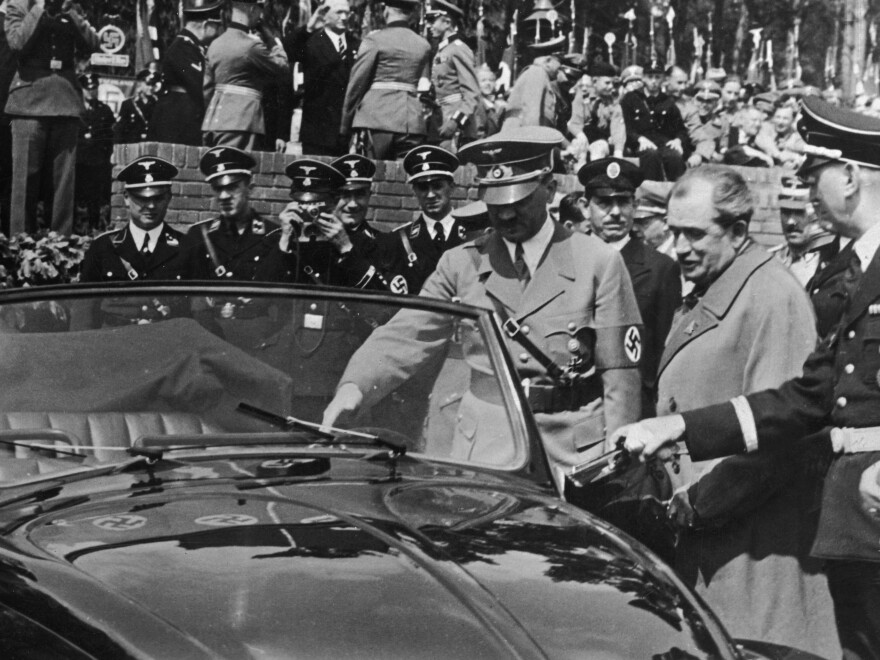Germany's determination to "never forget" the atrocities of the Holocaust has been at the center of its postwar success. But the Nazi legacies of Germany's wealthiest families highlight the country's challenge to make good on that commitment, according to author David de Jong.
He tells this story in his new book, Nazi Billionaires: The Dark History Of Germany's Wealthiest Dynasties. He said what shocked him most was the "brazen whitewashing" that still happened today by companies like BMW and Porsche.
"The families that control them ... are maintaining global foundations in the name of their patriarchs, such as Ferry Porsche, who designed the first Porsche sports car, or Herbert Quandt, who saved BMW from bankruptcy," de Jong said.
"Their business successes are celebrated, but the war crimes they committed or the Nazi affiliations they had, like being voluntary SS officers, are omitted on the websites of these foundations."
The Quandt family are the heirs of the BMW fortune, which has made them the richest family in Germany. Together, siblings Stefan Quandt and Susanne Klatten own more than 40% of BMW and are worth about $38 billion.
Their grandfather, Günther Quandt, was close to Hitler and used labor from concentration camps in his factories. Their father, Herbert Quandt, was a member of the Nazi Party and has been accused of committing war crimes.
A spokesman for the Quandt family told NPR the family had been transparent about its Nazi past as well as its past involvement with forced labor, and had donated millions to commemorate the fate of forced laborers from World War II.
But de Jong argues members of the Quandt family still struggle to reconcile their past.
"I think it's very hard for these heirs to distance themselves from their father and grandfather. They live in the shadow of these people," he said.
"They didn't make their fortunes themselves, so their entire identity derives from the fortunes that were created by their father and grandfather, Günther and Herbert. And to disavow the family patriarchs is basically to disavow their own identities."
The connection between the Nazis and famous automobile companies has been well documented. In May 1937, Adolf Hitler's party founded a state-owned company that was later named Volkswagen, or 'The People's Car Company'. Hitler himself asked Ferdinand Porsche, founder of the Porsche car company, to design it.
De Jong argues that the idea behind "never forget" means confronting the past with full transparency.
"You learn about history by showing the good and bad," de Jong said. "Not showing that [Herbert Quandt] ... had the responsibility of a battery factories in Berlin, where, thousands of forced slave laborers were used, including female slave laborers from concentration camps, you learn nothing about his history."
For de Jong, historical transparency is the "bare minimum" of what should be expected of the global foundations that these families maintain, and their companies.
Copyright 2022 NPR. To see more, visit https://www.npr.org.



